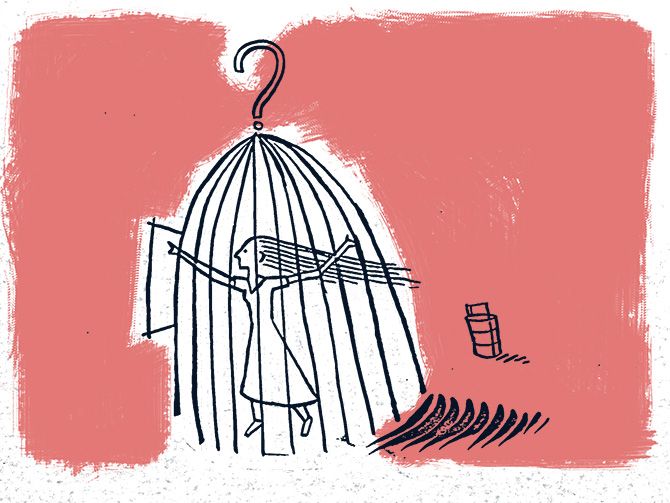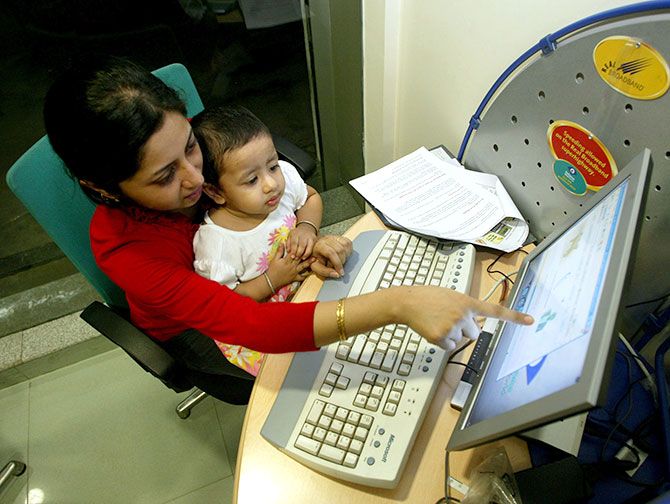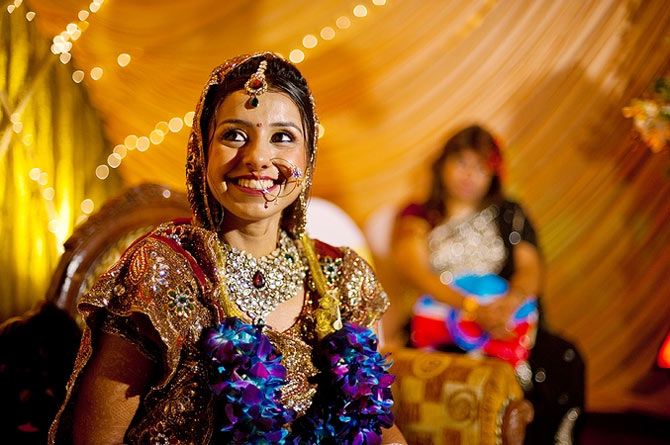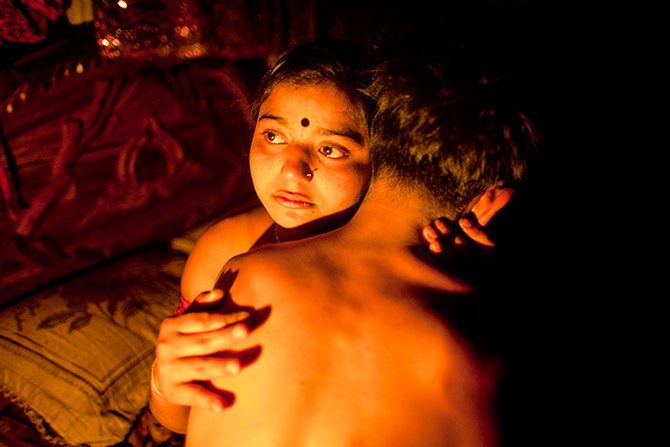'There are many more bad marriages than we want to acknowledge,' says Deepa Narayan.
Illustration: Dominic Xavier/Rediff.com

Every girl dreams of romance, love, family and a safe haven.
As they grow older, all too often this dream becomes a nightmare.
Girls learn that marriage is a compulsory gamble and they approach it with high excitement and low expectations.
Marriage, girls learn, is a core moral duty, the goal of life.


Not all marriages are unhappy, of course.
Some women find freedom after their marriage, they blossom with the support of loving husbands, whether staying at home raising kids or working outside the home, or both.
But there are many more bad marriages than we want to acknowledge.
It would cut into our dreams and the image of us as 'good' people and as a 'good' society, revealing the existence of shadowy, miserable women.
Fifty per cent more women than men are depressed and the average age of onset of major depressive episodes is 31, just as women have babies.
Not one young woman received any mental health help for depression.
Googling and finding information on the Internet saved two women's lives.
'Housewives' have the highest suicide rates.
Depressed dutiful women stay in dead or abusive marriages even when they have exit options.
Earning money through employment and wealth are not an insurance against abuse or violence in the home.
Many younger women agree with Naaz.
National-level statistics unfortunately show that involvement in decision-making as it is currently measured, a favourite indicator of empowerment, does not reduce violence against women.

Overall 37 per cent of women in the country between the ages of 15 and 49 have suffered physical violence, mostly from spouses.
The numbers go up to 66 per cent for women who are divorced, separated or deserted by their husbands -- women without umbrellas.
Even in highly literate Kerala, touted for its human development exceptionalism, high literacy and education rates, women get beaten up in their homes.
Women in 'love marriages', as we have seen from Naaz and Khusbu's sister, are not exempt from violence.

This does not mean that earning money has no value. It is important.
A man hesitates when a woman has options, especially large assets such as land and houses.
The effects of employment depend particularly on men's sense of masculinity. It can increase violence against women in the initial stages if men's sense of masculinity is hurt.
When masculinity means control, it leads women to tiptoe around men's egos to avoid male violence.
The fear of male aggression lurks in women's psyches.
It leads even highly educated Bhumi, 27, to say, 'I let him believe he has the power in the relationship.'
Culture has the power to bend economic theorizing.

Women absorb the anti-women culture so deeply that they blame themselves for everything, even miscarriages.
In this there is generational continuity.

The government National Family and Health Survey done once every decade shows that 55 per cent of women, a higher percentage than men at 51 per cent, still believe that women's transgressions, from not having food ready to denying sex, justify a beating by their husbands.
And this belief does not vary much between young and older women.

Education of women matters, but 21 per cent of women with higher education justify beating women.

Wealth has an effect but the middle-classes think like the poor: 62 per cent of women in poverty believe that women deserve beatings, but so do 61 per cent of the middlewealth group and 54 per cent in the next higher wealth level, dropping only in the wealthiest (top 20 per cent of the population) to 37 per cent.
But one-third of the wealthiest women is still a huge number.
The majority of women across wealth levels, except the top levels of wealth, believe in their own disposability, even more so than the men.
This is true success of cultural indoctrination.
*Kindly note that the photographs have been published only for representational purposes.
Excerpted from Chup, Breaking the Silence About India's Women, by Deepa Narayan, Juggernaut, with the publisher's kind permission.










